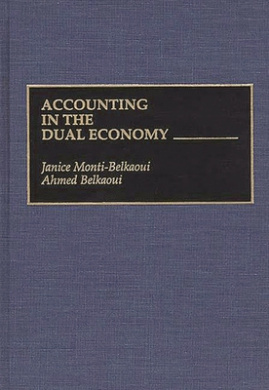Description
In recent years, the accounting profession has been faced with a number of unresolved problems, among which is the failure to distinguish between two separate sectors of the economy – the core and the periphery. This work offers a study of this “dual economy” in which large organizations are clustered at the centre while smaller ones are arrayed on the periphery. The authors argue that at least two sets of accounting standards are required to serve this structure adequately, and here they examine these standards and how they would affect such issues as financial reporting. The work explores the nature of the dual economy and provides a perspective on the way in which the concept operates. A survey of its theories and implications, and the issues of accounting validation in such a structure, is followed by analysis of some accounting problems and their relation to economic dualism, including income-smoothing, auditor-switching and bond rating changes. The book ends with an examination of public policy and standard-setting solutions to the dual economy situation.






